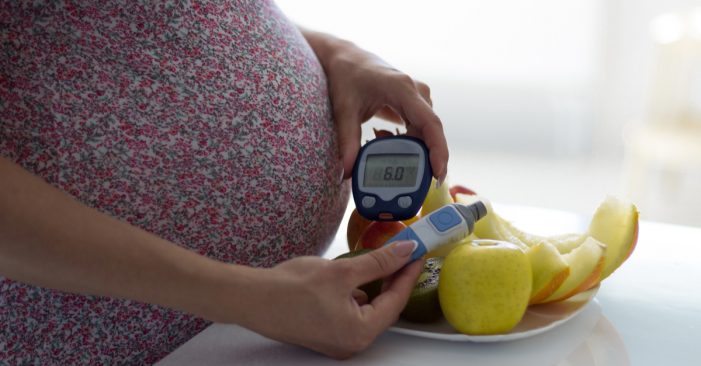Nearly 10 percent of pregnancies in the U.S. are affected by gestational diabetes every year. So know that you’re not alone.
And know that it doesn’t mean that you had diabetes before you conceived or that you will have diabetes after you give birth. It means that, by working with your doctor, you can have a healthy pregnancy and a healthy baby. No matter what, you have all the support you need for both you and your baby.
We don’t know what causes gestational diabetes …
But we know that you are not alone. It happens to millions of women. We do know that the placenta supports the baby as it grows. Sometimes, these hormones also block the action of the mother’s insulin to her body and it causes a problem called insulin resistance. This insulin resistance makes it hard for the mother’s body to use insulin. And this means that she may need up to three times as much insulin to compensate.
Gestational diabetes can also start when the mother’s body is not able to make and use all the insulin it needs for pregnancy. Without enough insulin, glucose can’t leave the blood and be changed into energy. When glucose builds up in the blood, it’s called hyperglycemia.
Whatever the cause, you can work with your doctor to come up with a plan and maintain a healthy pregnancy through birth. Ask questions. Ask for help. There are many ways to combat gestational diabetes.
How you can treat it
The key is to act quickly. As treatable as it is, gestational diabetes can hurt you and your baby.
Treatment aims to keep your blood sugar levels normal. It can include special meal plans and regular physical activity. It can also include daily blood sugar testing and insulin injections.
We suggest the following target for woman testing blood sugar levels during pregnancy:
- Before a meal– 95 mg/dl or less
- One hour after a meal–140 mg/dl or less
- Two hours after a meal–120 mg/dl or less
Always remember that this is treatable—and working with your health care team can help ensure a healthy pregnancy.
Diet and exercise are your friends
As with all forms of diabetes, diet and exercise can help you gain the upper hand. With gestational diabetes, maintaining a balanced diet is integral to your success. Your doctor can help you develop a meal plan that makes sense for you, helping you identify the best foods and quick meal ideas that can help you stay healthy and strong.
Exercise is critical, as well. Work with your doctor to determine the level of activity that’s safe for you and your baby throughout your pregnancy. Use our resources as well to stay in touch with ideas for daily activity. The important thing to remember is to take action as quickly as you can, to stay with it, and to stay on top of your condition. It’s treatable. It’s manageable. And it’s a fight that you can win.

